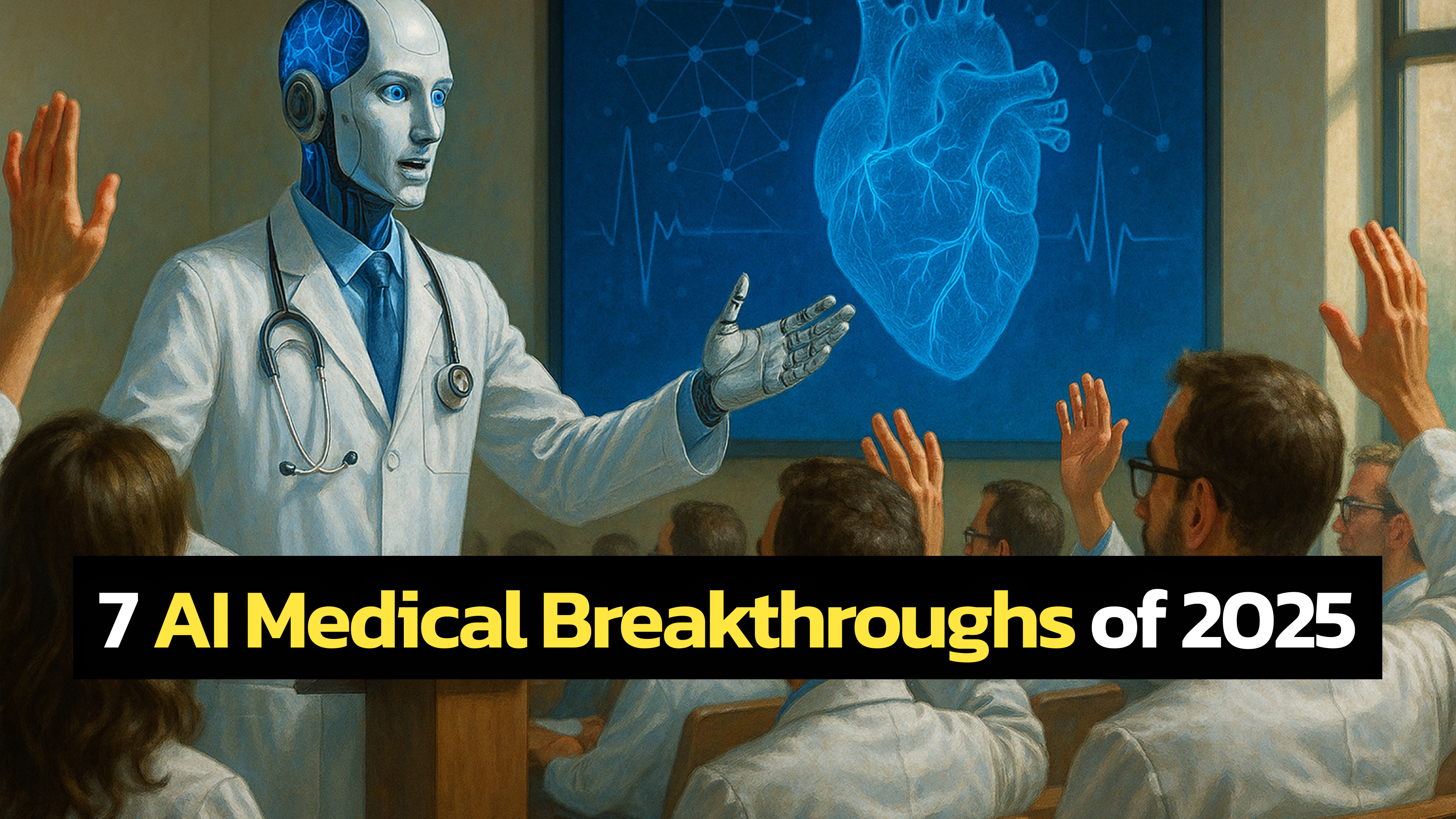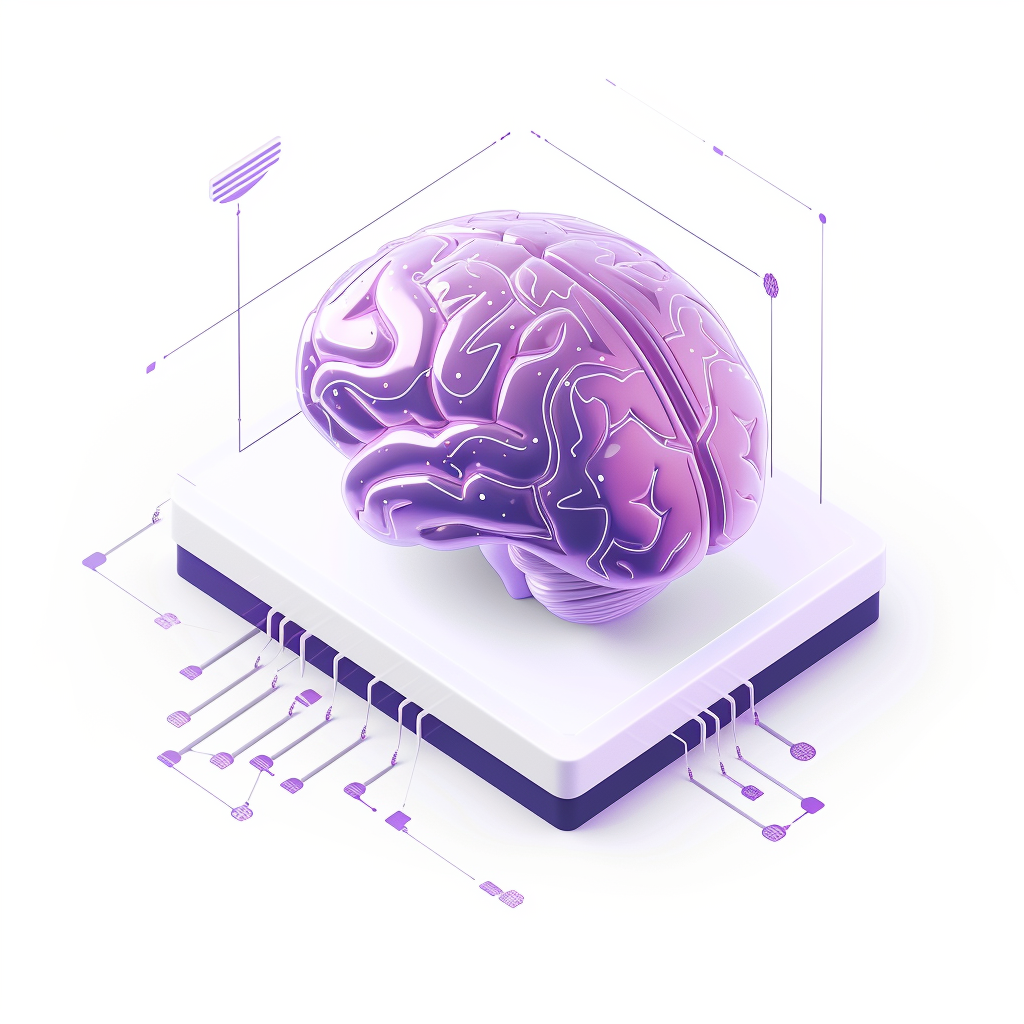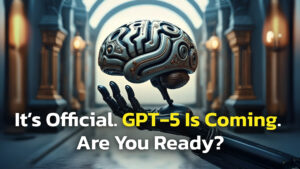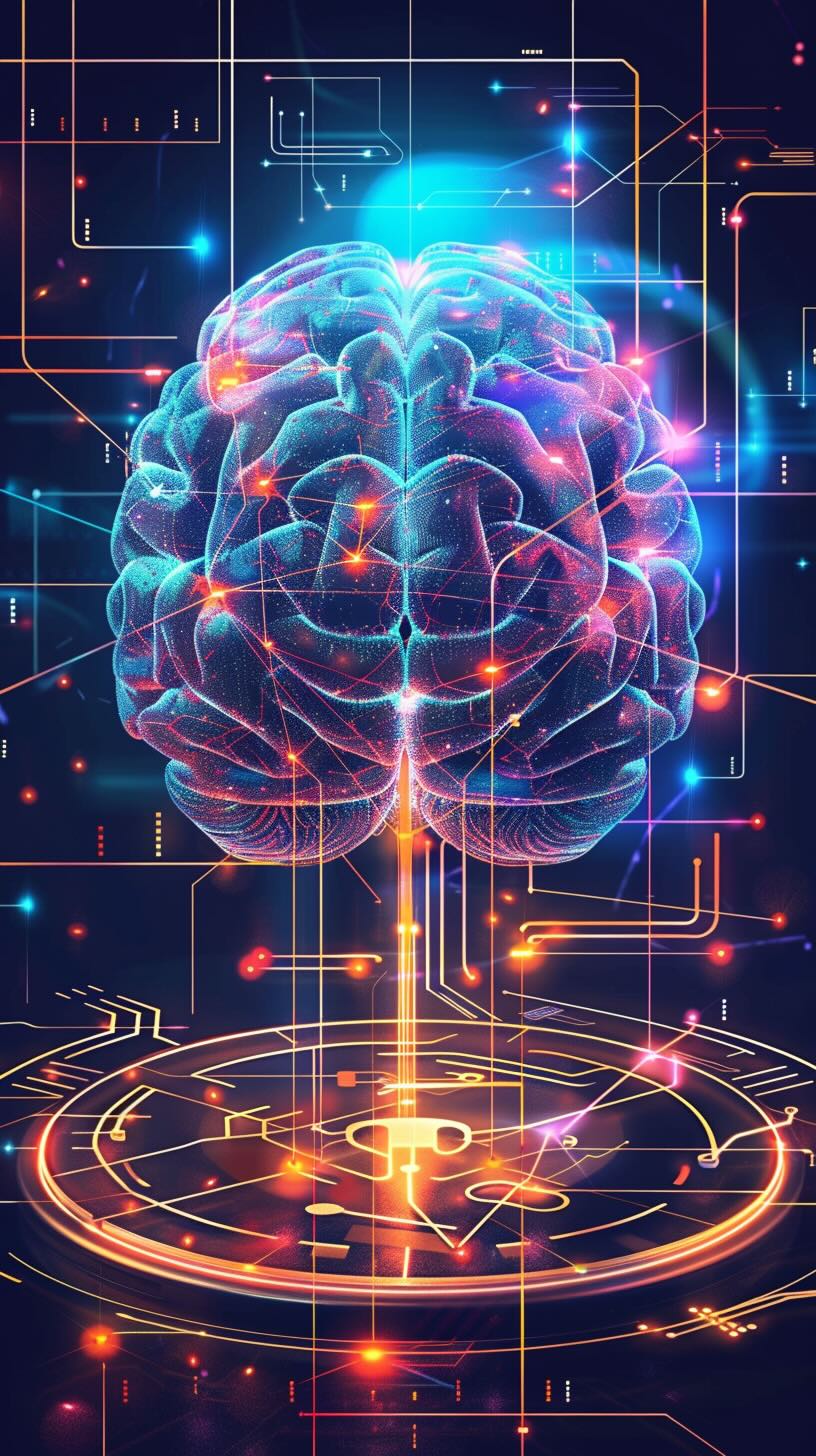Forget everything you thought you knew about medicine! Artificial Intelligence is crashing into healthcare with the force of a meteor, and the breakthroughs are coming so fast it’s hard to keep up. From diagnosing diseases before you even feel sick to creating personalized drugs just for you, AI is not just changing healthcare – it’s rewriting the rulebook. Get ready to have your mind blown by 7 AI-driven medical miracles happening RIGHT NOW in 2025!
Artificial Intelligence is no longer a futuristic fantasy in healthcare; it’s a present-day reality, actively transforming how diseases are diagnosed, treatments are developed, and patient care is delivered. In 2025, the pace of AI-driven innovation in medicine has reached a fever pitch, with new breakthroughs emerging that promise to make healthcare more precise, personalized, and predictive than ever before. As The Healthcare Technology Report highlights, AI is tackling massive datasets, streamlining workflows, and accelerating clinical trials, leading to tangible improvements in patient outcomes. This isn’t just about incremental changes; it’s a revolution.
1. AI-Powered Super-Vision Radiologist
One of the most impactful areas of AI in healthcare is diagnostics. AI algorithms, particularly those based on deep learning, are becoming incredibly adept at analyzing medical images like X-rays, MRIs, CT scans, and even retinal scans with a level of detail and accuracy that can surpass human experts. These AI systems can detect subtle patterns indicative of diseases like cancer, diabetic retinopathy, or neurological disorders at their earliest, most treatable stages – often before a human radiologist might spot them or before a patient even experiences symptoms. Microsoft News recently featured how AI tools are helping to spot diseases faster and more accurately.
For instance, AI can screen thousands of mammograms with remarkable speed, flagging suspicious areas for further review by a human specialist. This not only speeds up the diagnostic process but also helps to reduce the workload on radiologists, allowing them to focus on the most complex cases. The University of Maryland, Baltimore, discussed the benefits and limitations of AI in medicine, particularly in predictive medicine for cancer treatment, highlighting this early detection capability.
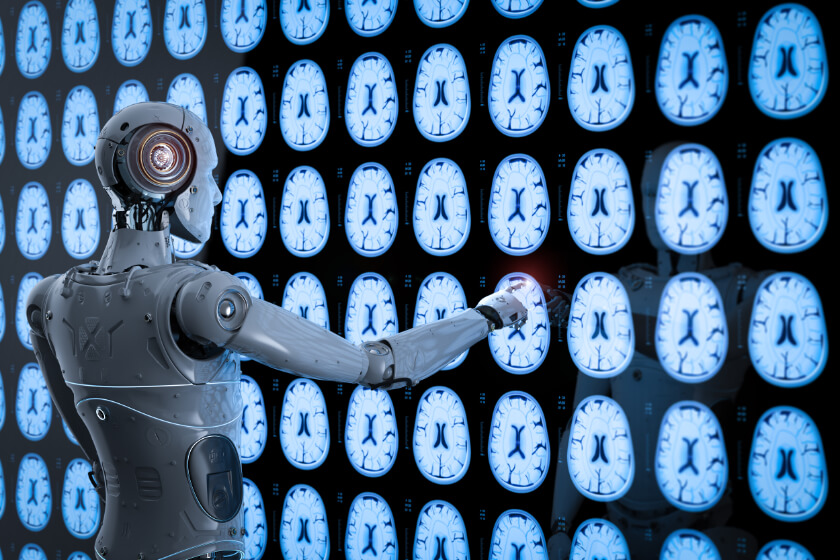
2. The AI Pharmacist
Developing new drugs is an incredibly time-consuming and expensive process, often taking over a decade and costing billions of dollars. AI is poised to dramatically accelerate this pipeline. By analyzing vast biological and chemical datasets, AI can identify potential drug candidates, predict their efficacy and side effects, and even design entirely new molecules tailored to specific diseases or individual patient genetics. This is the dawn of truly personalized medicine.
AI algorithms can sift through millions of compounds in a fraction of the time it would take human researchers, identifying those with the highest probability of success. Furthermore, AI can help to optimize clinical trial design, identify suitable patient cohorts, and monitor trial progress more efficiently. This means life-saving drugs could reach patients years earlier than previously possible. The ability of AI to accelerate scientific breakthroughs is revolutionizing healthcare research, and drug discovery is a prime example.
3. Intelligent Diagnostic Chatbots
Imagine having access to a medical expert 24/7, right from your smartphone. AI-powered diagnostic chatbots and virtual health assistants are making this a reality. These systems can engage in natural language conversations with patients, understand their symptoms, ask relevant follow-up questions, and provide preliminary diagnostic information or triage advice. Google’s AMIE project, which can now interpret medical images during diagnostic conversations, is a leading example of this trend.
While not intended to replace human doctors entirely, these AI assistants can provide valuable initial assessments, help patients understand when to seek urgent care, and offer guidance on managing chronic conditions. They can also help to alleviate the burden on overwhelmed healthcare systems by handling routine inquiries and providing accessible first-line medical information. Upskillist highlights AI agents in healthcare as a key use case for improving diagnostics and personalizing treatments.
4. Robotic Surgeons with AI Brains
Robotic surgery has been around for a while, but AI is taking it to a whole new level. AI-enhanced surgical robots can provide surgeons with real-time guidance, improved visualization, and enhanced precision, leading to less invasive procedures, faster recovery times, and better patient outcomes. These AI systems can learn from thousands of previous surgeries, identifying best practices and potential complications before they arise.
For example, AI can help surgeons navigate complex anatomical structures with greater accuracy, identify cancerous tissues that might be invisible to the naked eye, or even automate certain repetitive surgical tasks under human supervision. This doesn’t mean robots are replacing surgeons, but rather that AI is augmenting their skills, allowing them to perform procedures with a level of precision and control previously unimaginable. The Code Upscale article on 7 AI breakthroughs touches upon robotic surgery as a key area of AI’s impact.
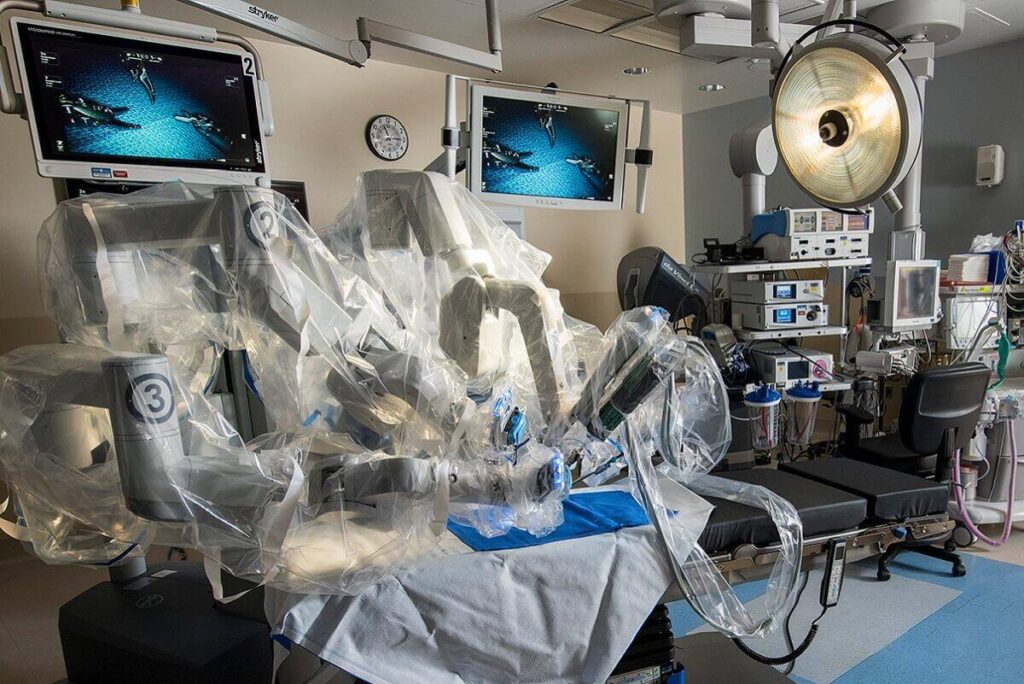
5. AI and Mental Health
Mental healthcare is another area where AI is making significant inroads. AI-powered apps and platforms are offering new tools for mental health support, including chatbots that can provide a listening ear and cognitive behavioral therapy (CBT) exercises, systems that can analyze speech patterns or text messages to detect early signs of depression or anxiety, and personalized mental wellness plans.
While AI cannot replace the nuanced understanding and empathy of a human therapist, it can provide accessible, affordable, and stigma-free support for individuals who may not have access to traditional mental healthcare services or who prefer a more private way to manage their mental well-being. AI can also help mental health professionals by automating administrative tasks, analyzing patient data to identify trends, and providing decision support for treatment planning. The potential for AI to expand access to mental health resources is immense.
6. Predicting Pandemics
The COVID-19 pandemic highlighted the critical need for better tools to predict, track, and respond to public health crises. AI is proving to be an invaluable asset in this domain. By analyzing vast datasets – including news reports, social media trends, airline travel data, and epidemiological information – AI can identify early warning signs of disease outbreaks, model their potential spread, and help public health officials make more informed decisions about resource allocation and intervention strategies.
Beyond pandemic preparedness, AI can also personalize public health interventions. For example, AI can identify individuals or communities at high risk for certain diseases based on their demographics, lifestyle factors, and environmental exposures, allowing for targeted prevention programs and health education campaigns. This data-driven approach to public health can lead to more effective and equitable health outcomes for entire populations. Crescendo.ai’s news updates often feature such large-scale AI applications in health.
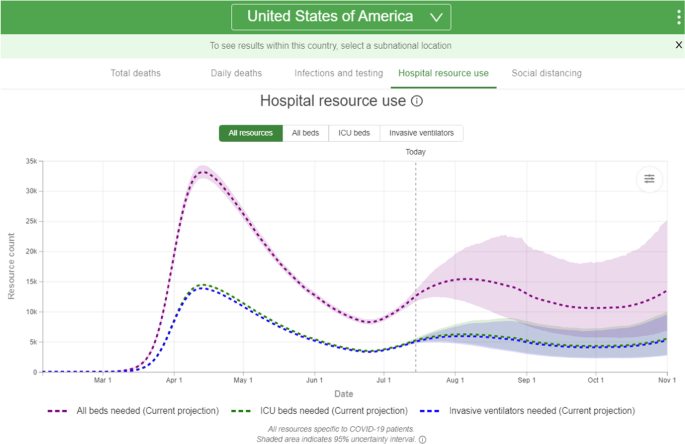
7. AI Decodes Gut Bacteria for Disease Diagnosis
One of the most fascinating and cutting-edge areas of AI in healthcare involves the microbiome – the trillions of bacteria that live in our gut. Scientists are increasingly recognizing the profound impact of gut health on overall well-being, linking imbalances in the microbiome to a wide range of diseases, from inflammatory bowel disease and obesity to autoimmune disorders and even mental health conditions.
AI is playing a crucial role in decoding the complex language of the gut microbiome. By analyzing the genetic makeup of gut bacteria and correlating it with patient health data, AI algorithms can identify patterns and biomarkers associated with specific diseases. A recent breakthrough reported by ScienceDailyshowed researchers using AI and gut bacteria patterns to diagnose complex regional pain syndrome (CRPS) with remarkable accuracy. This opens up exciting new possibilities for non-invasive diagnostics and personalized treatments based on modulating the gut microbiome.
Závěr
The seven breakthroughs highlighted here are just a glimpse into the transformative power of Artificial Intelligence in healthcare. From super-powered diagnostics and personalized drug discovery to AI-assisted surgery and mental health support, AI is not just improving existing medical practices; it’s creating entirely new possibilities for preventing, diagnosing, and treating disease. As D Magazine’s healthcare business section notes, addressing today’s challenges through trustworthy AI is key.
Of course, the integration of AI into healthcare also brings challenges – ethical considerations around data privacy and bias, the need for robust regulation, and the importance of maintaining the human touch in medicine. But the potential benefits are too immense to ignore. The AI healthcare revolution is well underway in 2025, and it promises a future where medicine is more predictive, personalized, precise, and ultimately, more powerful in its ability to improve and save lives. The future of your health is increasingly intertwined with the intelligence of machines, and that’s a prognosis that should fill us all with a healthy dose of optimistic anticipation.

